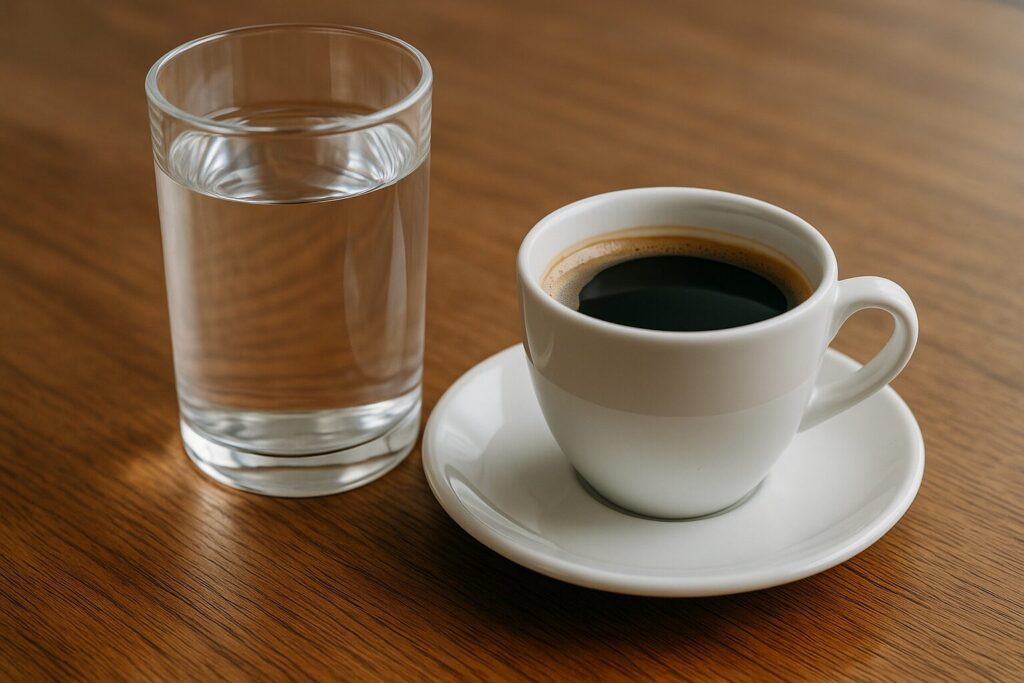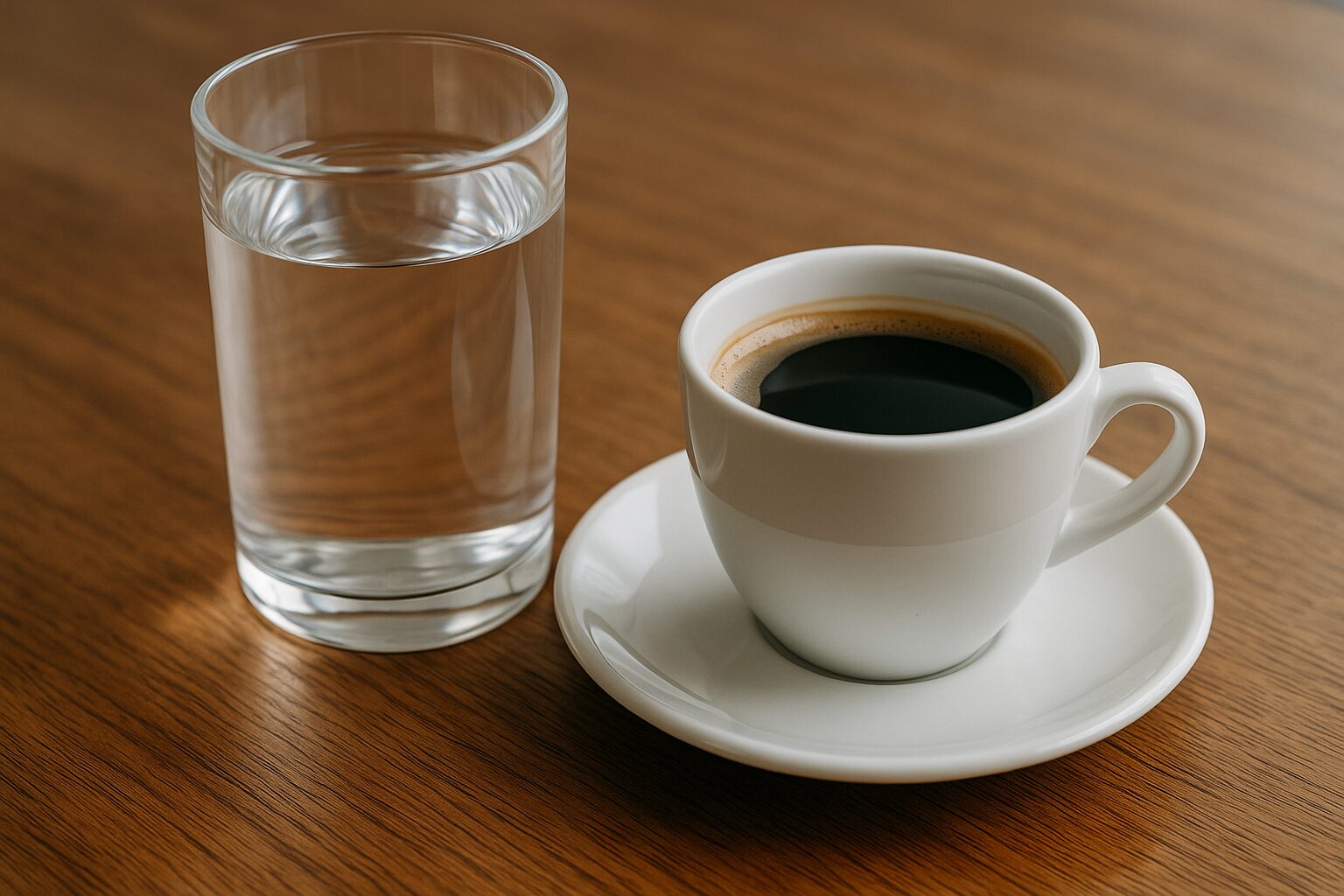Hydration is essential for metabolism, circulation, and overall health. While many people rely on coffee, tea, or energy drinks for fluid intake, water remains the purest and most effective source. This article compares caffeinated beverages and plain water to highlight differences in hydration quality and health impact.

1. Basic Role of Hydration
The body loses fluids through sweat, breathing, and urination daily. Around 1.5–2 liters of intake is generally recommended. While foods and drinks contribute to hydration, quality depends on what is consumed.
2. Caffeinated Beverages
Coffee, tea, and energy drinks contain water and may help short-term hydration. However, caffeine has a mild diuretic effect, which may increase urination and reduce overall fluid balance if consumed excessively.
3. Pros and Cons of Caffeine
Caffeine may boost alertness and mood and some drinks provide antioxidants. Yet overconsumption may cause insomnia, anxiety, digestive issues, or rapid heartbeat. Sugary or high-calorie energy drinks can also contribute to weight gain.
4. Benefits of Plain Water
Water contains no calories, additives, or stimulants. It hydrates efficiently, regulates temperature, aids digestion, and supports skin and organ function. For daily hydration, water is considered the safest and most stable option.
5. Differences in Hydration Quality
Caffeinated drinks can supplement hydration but should not replace water. Water ensures stable fluid balance without side effects, while caffeine intake requires moderation. Combining both carefully may help maintain energy while preventing dehydration.
6. Age and Health Considerations
– Teens: Sensitive to caffeine, so water should be the main source
– Adults: Up to 400 mg caffeine may be safe, but water should cover most daily intake
– Pregnant women: Limit caffeine to 200 mg per day, with water as the primary choice
– Seniors: Slower caffeine metabolism, so limiting intake and focusing on water may reduce risks
7. Practical Tips
– Aim for 70–80% of daily fluids from water
– Limit coffee or tea to one or two servings per day
– Choose water or herbal teas in the afternoon and evening
– Carry a water bottle when outdoors
– Use water for hydration before and after exercise
🍀
Both caffeinated drinks and water provide fluids, but their effects differ. Water remains the foundation of healthy hydration, while caffeinated beverages may serve as an occasional supplement. By balancing both, individuals may maintain fluid balance, energy, and long-term health.
References and Further Reading
World Health Organization (WHO) – Hydration Guidelines
National Institutes of Health (NIH) – Caffeine and Hydration
European Food Safety Authority (EFSA) – Caffeine and Fluid Balance
※ This article is for general informational purposes only. Fluid needs vary by age, activity level, and health status. Professional consultation is generally recommended for personalized advice.
